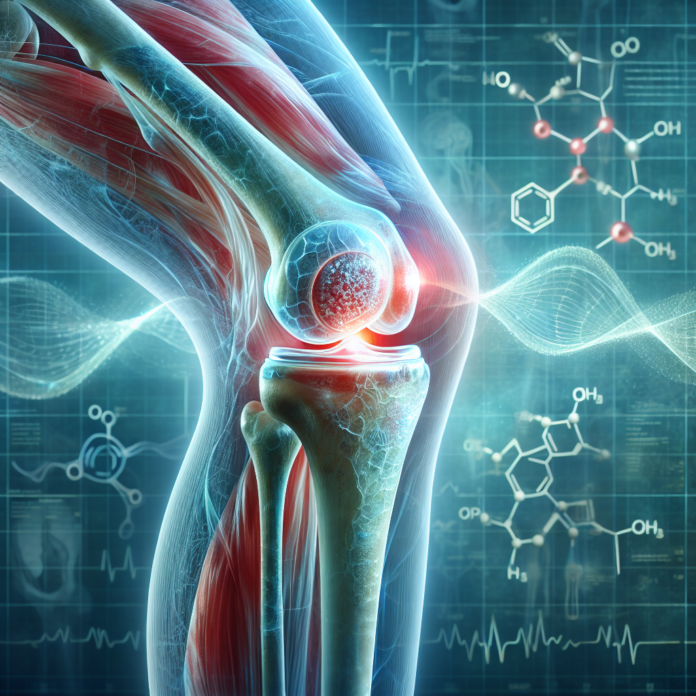If you’ve been battling chronic knee pain long after an ACL tear and the subsequent surgery, you may have come across the buzz surrounding peptides, particularly BPC-157. This intriguing compound, naturally found in our stomach linings and synthetically produced for therapeutic use, has become a hot topic among those seeking relief from persistent pain. In this blog, we delve into the potential benefits and limitations of BPC-157 as explored in a video featuring Dr. David Guyer, an expert in sports medicine, anti-aging, and regenerative therapies. With a focus on its impact on musculoskeletal injuries, we examine what current research suggests and why consulting with a healthcare professional is crucial before considering this experimental treatment. Join us as we uncover whether BPC-157 might be the breakthrough for easing your knee discomfort or simply another option in a growing list of possibilities.
What is BPC-157?
BPC-157 is a synthetic peptide that is garnering attention in the orthopedic and pain management community for its proposed healing properties. Derived from a sequence of 15 amino acids naturally occurring in the human gastric juice, BPC-157 promises to aid in the healing of various musculoskeletal injuries by potentially enhancing the repair processes of muscles, tendons, and ligaments. However, its efficacy and safety remain topics of ongoing investigation, with much of the interest stemming from anecdotal reports and preliminary research findings.
BPC-157 and Chronic Knee Pain
One of the primary discussions around BPC-157 involves its potential role in addressing chronic knee pain, particularly post-ACL surgery pain that persists for years. Following an ACL tear and its surgical intervention, individuals often experience lingering pain, partly due to the increased likelihood of developing osteoarthritis—a known consequence of joint surgery and injury. While ACL surgical interventions aim to stabilize the knee, they may not fully mitigate the risk of joint degeneration, making alternative treatments a subject of exploration.
Theoretical Benefits and Research Findings
The peptide’s theorized benefits are based on its supposed ability to enhance cellular repair and regeneration. For instance, in vitro studies and animal models have suggested that BPC-157 might accelerate healing in ligament and tendon injuries by promoting angiogenesis, the formation of new blood vessels, which is crucial for supplying the injured tissue with adequate nutrients and oxygen required for repair.
Interestingly, there have been reports of BPC-157 aiding pain reduction in clinical settings, although these are limited and should be interpreted with caution. A particular study, though not without its methodological faults, involved 16 patients with varying forms of knee pain. After BPC-157 injections, a striking 87% of the patients reported significant pain relief. Despite the study’s limitations—such as a lack of control group and randomization—the results have sparked enthusiasm for further exploration into BPC-157’s potential.
Considerations and Cautions
- Method of Administration: There’s ongoing debate about the optimal route for administering BPC-157. While subcutaneous injections near the injury site are suggested to be more beneficial, there is still no consensus. The alternative oral route hasn’t shown equal promise in treating orthopedic issues, which implies that localized delivery might be crucial for effectiveness.
- Comparison with Other Treatments: When considering BPC-157, it’s important to weigh its potential benefits against other established therapies. Treatments like stem cells and exosomes, which are also experimental but becoming increasingly popular, might offer superior benefits for osteoarthritis and chronic joint issues due to their regenerative capabilities. However, these remain more invasive and costly compared to peptide therapies.
- Regulatory and Safety Concerns: As Dr. Guyer stresses in his discussion, BPC-157 and other peptides are still considered experimental by regulatory agencies like the FDA. This classification underscores the need for further research to establish standardized protocols, dosages, and long-term safety profiles. Patients should discuss these factors rigorously with their healthcare providers to understand the risks and benefits before considering treatment.
- Individual Variability: The response to BPC-157 can vary significantly from person to person, influenced by factors such as the extent of knee damage, individual biological response, and concomitant health conditions. Personalized treatment approaches that take these variables into account are crucial.
Conclusion
In conclusion, while the potential of BPC-157 for managing chronic knee pain offers hope, it is not a definitive solution as of now. The peptide represents just one piece of a broader therapeutic puzzle that should be used in conjunction with medical guidance and as part of a comprehensive treatment plan. As research unfolds, it may become clearer whether BPC-157 can transcend its experimental status and integrate into mainstream therapeutic options for musculoskeletal injuries. Meanwhile, patients and physicians alike must navigate this emerging field with informed caution, grounded in ongoing scientific inquiry.
